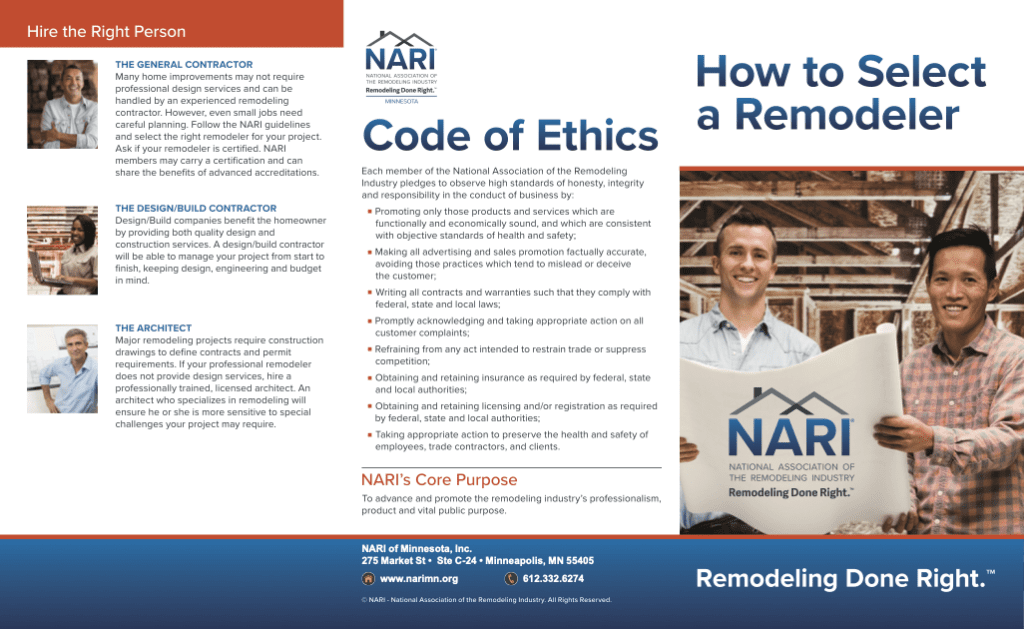Selecting a qualified professional remodeling contractor is critical to a successful project. Be better prepared to make an informed purchasing decision. NARI’s guidelines make the process easier.
References
Hire a qualified remodeler with an established business in your area who works with your city or village permitting office. Local firms can be checked through references from past customers.
Repuation
Check with your state government Consumer Affairs Office and Better Business Bureau to ensure there is no adverse file on record for the contractor.
Insurance
Verify coverage and ask to see a copy of the contractors’ Certification of Insurance. Make sure the contractor’s insurance coverage meets all the minimum requirements. Most states require a contractor to carry worker’s compensation, property damage, and personal liability insurance.
Bid Process
If you solicit bids from several different companies, be sure they are bidding on the same scope and quality of work and/or product. Dicuss variation in bids and beware of any bid that is much lower than others.
10 Steps to Remodeling Done Right
A contract should include details about what the contractor will and will not do and is essential before the start of any project – big or small.
Contract Checklist
- Be sure the contract includes the contractor’s name, address, phone, license number (if applicable), start and completion dates.
- A detailed list of materials for the project should be included in your contract, with information such as size, color, model, brand name, and product.
- Consider the scope of the project and make sure all items you’ve requested are included. If you do not see a specific item in the contract, consider it not included.
- Study the design plans carefully. Insist that you approve them and they are identified in your written contract before any work begins.
- Known as the ‘Right of Rescission,” federal law requires a contractor to give you a written notice of your right to (without penalty) cancel a contract within three business days of signing it, provided it was solicited at some place other than the contractor’s place of business or appropriate trade premises.
- Make sure financial terms are understood and spelled out in the contract. Total price, payment schedule, and any cancellation penalty should be clear.
- A warranty covering materials and workmanship for a minimum of one year should be written into the contract. The warranty must be identified as either “full” or “limited”. The name and address of the party who will honor the warrant (contractor, distributor, or manufacturer) must be identified. Make sure the time period and terms for the warranty is specified.
- A binding arbitration clause is also a good inclusion in the event a disagreement occurs. Arbitration may enable you to resolve disputes without costly litigation.
- Thoroughly review the entire contract and be certain you understand it before signing.
- Never sign an incomplete contract and always get a final copy.

